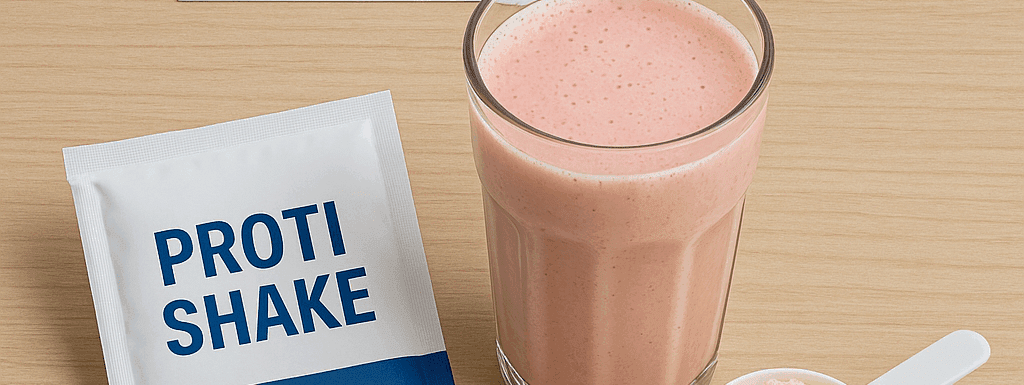JourneyLite has collectively helped over 10,000 patients lose weight and change their lives through procedures such as the VSG (gastric sleeve), gastric bypass, Lap Band, and SADI. Our team does everything we can to minimize risk for our patients, and over the years one of the most effective things we have found to reduce surgical risk is a pre-op diet. In this article, we’ll cover:
-
- Why the pre-op diet is medically necessary
- What benefits a good pre-op diet provides
- What a typical pre-op meal plan looks like
- How this step supports your weight loss journey
1. Shrinks the Liver for a Safer Surgery
One of the most important reasons for a bariatric pre-op diet is to “shrink” your liver.
People with obesity often have enlarged, fatty livers. Since the liver sits above the stomach, a large liver makes it harder for your bariatric surgeon to safely access your stomach using minimally invasive laparoscopic techniques.
A low-carb pre-op diet forces your body to start burning fat for energy; this is known as ketosis. Ketosis is a delicate metabolic state that must be maintained in order for the liver to shrink. A smaller liver simply makes the surgery easier, safer, and faster.
2. Reduces Intra-Abdominal Fat
The pre-surgery weight loss diet also helps decrease visceral fat, or fat around the internal organs. This improves visibility and access for your surgeon, which:
-
- Lowers the risk of complications
- Improves the quality of the operation
- Reduces your time under anesthesia
Once we have determined the length of your pre-op diet, we are able to determine how much weight you will lose during that time. While any amount of weight loss is beneficial, the higher your body weight is the more weight you will need to lose before your surgery.
3. Decreases Risk of Surgical Complications
By improving your metabolic health and lowering inflammation, the pre-op diet helps reduce your risk of:
-
- Bleeding
- Infection
- Respiratory issues under anesthesia
- Longer hospital stays
According to research, patients who follow their bariatric surgery pre-op diet plan have shorter surgeries and better outcomes than those who don’t.
4. Prepares You for Post-Op Life
Weight loss surgery is a tool, not a cure! Your long-term success depends heavily on adopting healthy eating habits and other lifestyle changes.
The pre-op diet introduces you to:
-
- Portion control
- High-protein, low-carb meals
- Sugar and fat reduction
- Mindful eating practices
It’s your first step in building the routine you’ll need after surgery to maintain long-term weight loss.
5. Leads to Better Post-Surgery Results
Following your pre-bariatric surgery diet is one of the best predictors of success after the procedure.
Patients who stick to the plan tend to:
-
- Lose more weight after surgery
- Adjust more quickly to their new eating habits
- Feel more mentally prepared for the lifestyle changes ahead
What Does a Pre-Op Bariatric Diet Include?
At JourneyLite, we have all the foods you will need during your pre-op diet. During your initial consult with one of our dietitians, you will be given the expected length of your pre-op diet and the cost of the foods needed.
Length of the Pre-op Bariatric Diet
The length of your pre-op diet is calculated according to your BMI as follows:
-
-
-
BMI 30-34.99: 3 day pre-op diet
- BMI 35-39.99: 1 week pre-op diet
- BMI 40-44.99: 2 week pre-op diet
- BMI 45-49.99: 3 week pre-op diet
-
BMI ≥ 50: 4 weeks minimum
-
-
Foods and Beverages
-
-
- 6 food items from the pre-op bariatric diet foods purchased from the office
-
- Calorie free/sugar free beverages (unlimited)
-
- Sugar Free Popsicles (No Sugar Added is NOT the same as Sugar Free)
-
- Sugar Free gelatin; Jell-O or any brand is approved
-
NOTHING OTHER THAN THESE APPROVED FOODS/BEVERAGES ARE ALLOWED DURING THE PRE-OP DIET.
Want to get a peak at what foods are included? You can check them out HERE.
Following this plan exactly is key to ensuring your liver shrinks and your body is ready for surgery.
Final Thoughts: Your First Step Toward Success
It’s easy to feel overwhelmed by the requirements of bariatric surgery, but the pre-op diet is truly a game-changer. Not only does it lower your risk of complications and help the surgery go smoothly, but it also sets the tone for the healthy habits you’ll need in the weeks, months, and years ahead.
Stick to the plan, ask your care team questions if you’re unsure, and remember—this isn’t just a diet. It’s the first step in your journey to a healthier, more confident you.


